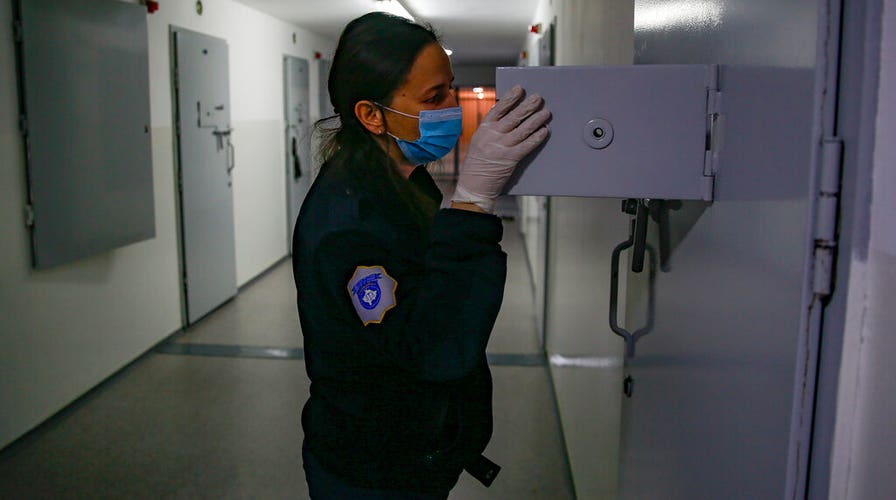Fox News Flash top headlines for March 26
Fox News Flash top headlines are here. Check out what's clicking on Foxnews.com.
Get all the latest news on coronavirus and more delivered daily to your inbox. Sign up here.
Attorney General William Barr instructed the Bureau of Prisons (BOP) to move nonviolent inmates who are at risk of contracting the coronavirus out of prison facilities and allow them to serve out their sentences in home confinement.
"Many inmates will be safer in BOP facilities where the population is controlled and there is ready access to doctors and medical care," Barr wrote in a two-page memo to BOP on Thursday. "But for some eligible inmates, home confinement might be more effective in protecting their health."
PICTURES: NEW YORK CITY SHUTS DOWN AS CORONAVIRUS CASES RISE
Barr directed the bureau to prioritize home confinement for prisoners in low- and minimum-security facilities who pose no safety threat to the community and have a low likelihood of recidivism.
Criminals who have committed violent crimes or sexual offenses are not eligible for home confinement.
The BOP medical director has been instructed to assess an inmate's risk factor in contracting COVID-19, including coronavirus exposures at the particular prison facility as well as the individual inmate's health history and age.
Inmates who are granted home confinement will have to be quarantined for 14-days before they are discharged from the prison in an effort to protect the public.
"We cannot take any risk of transferring inmates to home confinement that will contribute to the spread of COVID-19," Barr wrote.
CLICK HERE FOR THE FOX NEWS APP
Inmates at some of the most heavily populated prisons in the country -- including Rikers Island in New York and California State Prison in California -- tested positive for COVID-19 and the risk of spread throughout prison facilities is troublesome because of the close proximity of prisoners to each other and BOP staff.













































